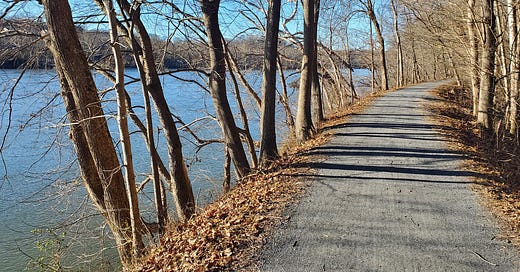Photo by David Sanders
Trying to Explain the 70s
You didn’t know where anybody was. Nobody knew where you were. Everything was encased in a cone of mystery. You spent time looking at the bumps in concrete, the shiny body segments of ants, or digging at soft black road tar with your fingers in the heat, riding in the backs of pickup trucks, a few long-haired dogs next to you with their own plans for the day. You spent thousands of hours sitting almost mindless on the banks of creeks. But your chest, your feelings, were topped off tight with colors, the bright fuchsia parachute silk of hot air balloons dying down in the field after landing, the Tang-orange of plastic drinking cups stacked, or yellow as Woodstock, Snoopy’s bird. You pedaled down streets you were pretty sure were right. You had to make your own cut-off shorts and wait for them to fray. Common knowledge spread at the speed of dust floating in a sun mote, but everybody could spell Mississippi and did so constantly. You saw naked people pretty frequently too—naked grownups wading in the river, genitals like small, darkly stained animals.T hey strategized getting the boat to the shore, talked about potlucks, pot, and politiciansbut not at length. Length was for letters written in cursive and saved in trunks. Hippies could, if pressed, change spark plugs, make applesauce, divide fractions, pitch tents— practical skills taught to them by people in clothes who fought in Korea or Europe. Metaphorically, every room had other rooms off it. Trees ruled the earth. The Atlantic and Pacific Oceans bracketed our continent like ancient gods we weren’t feeling sorry for at all. If you could have collected Supreme Court playing cards like you collected baseball cards (gum), you would have. Dogs didn’t necessarily have to stay home or get fixed or have shots. When your breasts came in as tender knots, you thought you might have done something wrong. Camping, you ate beveled vegetarian hot dogs from a can. Adults were overly jazzed about carob. The sesquicentennial was red, white, and blue, a yearlong celebration of those colors in that order, fireworks smelled Chinese in the dark, or like Vietnam. Your frog was still warm. The teacher had gone that morning out to the creek behind the school and caught a sack full. The smell of frog is the smell of algae plus blood. Yours weighed over a pound, its insides beautiful white and pale pink, its long legs squeaky to the touch, reflexes still working. What had the frog hoped for? When she cut him open with the scalpel, Stacy’s frog’s heart was still beating like a wet, red jumping bean. Like your own heartbut smaller. The teacher assured you that the heart can beat after death, a thing no one would look up. What is death then? You did not worry we would ever run out of frogs.



